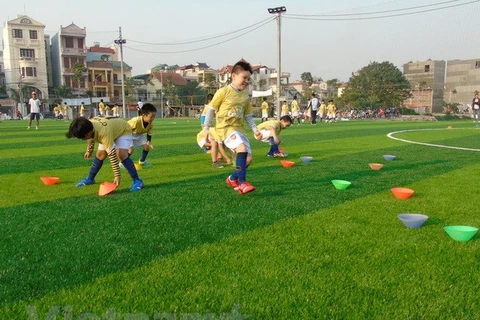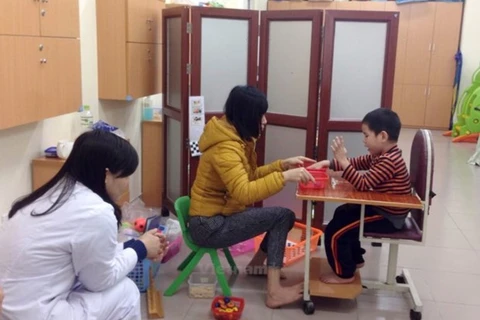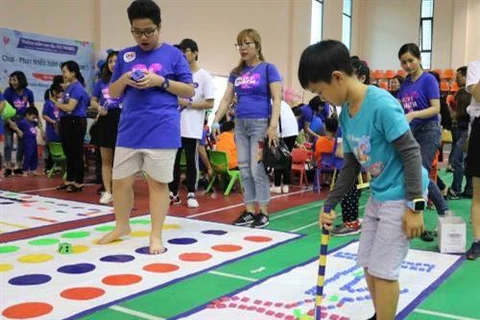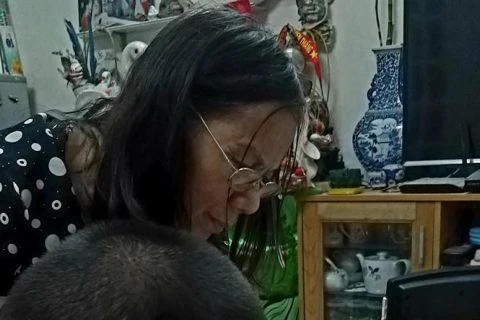 Saigon Children's Charity on June 24 started the last phase of the three-year project "Early Intervention for Children with Autism – Training the Trainers". (Photo courtesy of the saigonchildren)
Saigon Children's Charity on June 24 started the last phase of the three-year project "Early Intervention for Children with Autism – Training the Trainers". (Photo courtesy of the saigonchildren) HCM City (VNS/VNA) - Nineteen lecturers and practitioners are learning communication and language therapy as well as life skills that can be taught to children with autism.
This instruction is part of the last phase of a three-year project called "Early Intervention for Children with Autism – Training the Trainers".
The Saigon Children’s Charity CIO (saigonchildren) started the last phase on Monday.
In the two-week phase, six experts facilitate and support trainees’ activities but do not lead training sessions. They guide trainees on how to solve real situations which they have faced while teaching and working.
Despite a growing demand for appropriate intervention for children with autism, there has not been consistent guidance for teachers and parents on how to best support these children.
The Saigon Children's Charity has been working with international experts in autism and specialists from across Vietnam to develop a new approach and to improve the standard of early intervention for children with autism.
The project was launched in 2016 as a joint initiative of the charity, the National College of Education Ho Chi Minh City and OWL Therapy Centre in the UK.
The project has been conducted since 2017 to provide training for core teachers and parents across Vietnam in theoretical and practical sessions.
With financial support from Lufthansa Help Alliance for the last year of implementation, all trainees are offered free courses and workshops with consultations from leading experts in the field.
Damien Roberts, executive director of the Saigon Children's Charity, said: “With your knowledge and expertise, we can build an effective network across Vietnam to help give care, support and education to many children with autism and their families.”
Nguyen Thi Mai, an early intervention practitioner in Dong Nai province, a trainee in the course, said that practical training and the contributions and engagement from other trainees in the course would help build a strong community to support children with autism and their families.
The project modules will be duplicated for the upcoming year with free training courses to support teachers, therapists, caregivers and parents how to approach children with autism appropriately.
The next course will take place from 2020-22 with two weeks of intensive training each year.
A 2017 study from the Ministry of Labour, Invalids and Social Affairs found that nearly 200,000 children in the country had autism at the time.
However, practitioners providing interventions to these children say the real number is higher. — VNS/VNA
VNA























